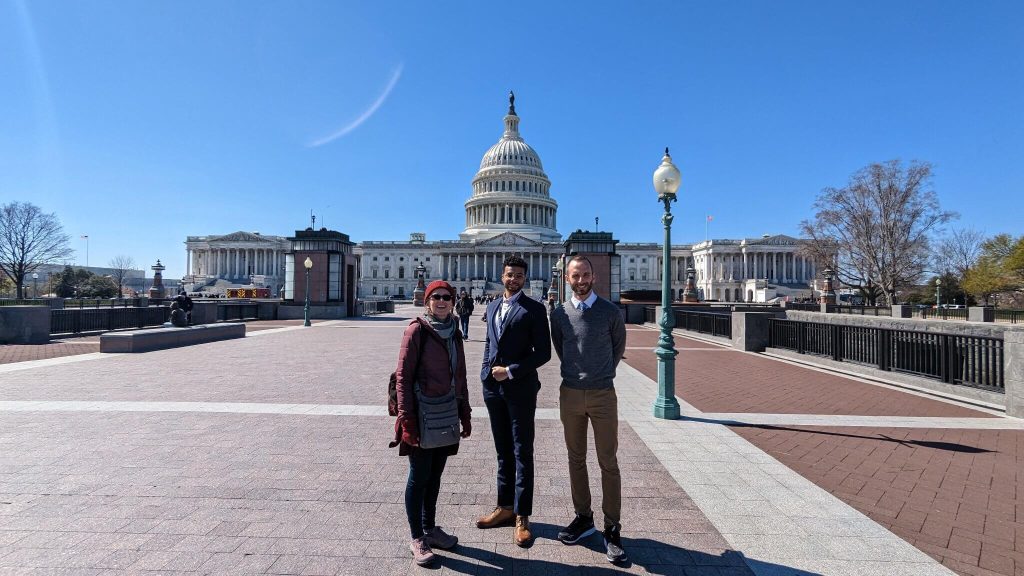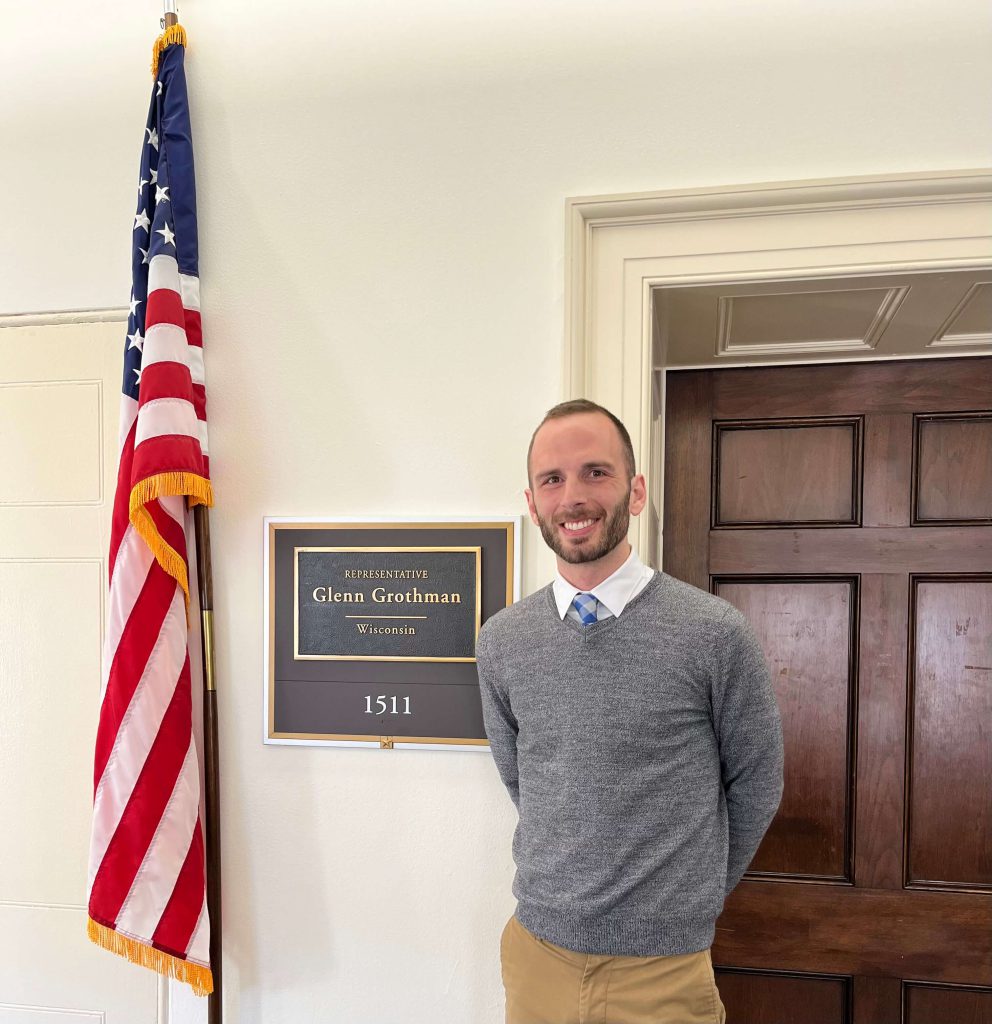DPT Faculty Kevin Gries shares his experience on promoting his program to politicians and public figures.
On March 14th, I had the opportunity to discuss scientific funding with federal lawmakers for the Federation of American Societies for Experimental Biology. As I write this blog while waiting for my flight from D.C. back to Milwaukee, I cannot help but think of the importance of advocating for what you believe in. This trip has taught me several things that I wanted to share as well as tips for advocating.

Government influences our jobs, whether we like it or not
We underestimate how much governmental funding and regulations affect our day to day lives. However, those that are making these decisions are often several steps removed from the challenges we face and therefore misconceptions arise. An example of this occurred in our meetings where we stressed money distributed from the National Institutes of Health (NIH) is distributed based on a peer-review system of scientists across the country and not just officials within the NIH. This small misunderstanding led to the staffer drastically changing their demeanor on increasing scientific funding. I sit here thinking how many misconceptions may be out there regarding all of our professions that can be fixed by meeting and advocating for your cause with politicians.
Have uncomfortable conversations
I also noticed the need to talk with people who disagree with us. We live in an increasing polarized world in all aspects of life, not just politics. When we disagree with people, we often find ourselves uncomfortable which leads us to find friends who affirm our believes, watch tv stations that only say what we want to say, and follow people on social media who agree with us.
However, it is uncomfortable conversations that make us grow and reflect, and make us think about if our beliefs are truly the right way to act. These conversations also allow us to least learn about “the other side” and see the people as humans rather than simply the opposition. We need to avoid echo chambers. We also need to see that leaders often want to help you, but their means just may be different than what you think. Having this attitude will help us see those we disagree with as still brothers and sisters in Christ.

Ways to advocate
I am extremely fortunate to be asked to travel to Washington D.C. to advocate for what I believe. So, while this specific trip may not be for everyone, there are ways in which you can advocate for your beliefs:
Focus on your sphere of influence.
This isn’t an attractive piece of advice, but is the most effective. If you want to see good/a change in the world, start with the people you spend the most time with. Be good to your family, friends, neighbors, community, classmates, etc. It does not do any good to take our frustrations on your family based on things far away and that you cannot control.
Meet government officials.
This doesn’t mean travel to Washington D.C. Maybe your state capitol is more reasonable. Several public offices will hold Zoom meetings, which makes talking to your representatives as easy as a phone call. Perhaps you can speak with your representative directly when they visit your district. You can also write letters, use social media, and call their offices. You can make a difference.
Use the power of media.
This can include writing letters to the editors in journals or magazines (be sure to select the source based on your target audience). This can also mean use social media. However, to be an effective advocate on social media, you have to be ready to have your information scrutinized. If you want your opinion to be taken seriously, that means you need to be taken seriously. Clean up your profile before doing this.
Join an advocacy group.
I am a part of several scientific and other advocacy groups based on topics I am passionate about. If you feel uncomfortable speaking your opinion, you can donate to these groups (traveling is not free), or just give moral support by simply being there.
This trip to Washington D.C. is one I plan to make yearly. I enjoy communicating the importance of the scientific process to lawmakers to improve the health of our society. We need to remember the power that we have, no matter what stage of your career you are in (yes, even students), and use that power to improve the lives of those around us, no matter the topic.
Feeling Inspired?
If you want to learn more about becoming a physical therapist, feel free to check out our website.
You can also take a look at our most recent blog posts about A Day in the Life of a Physical Therapy Student or learn about Experiential Learning

- Dr. Kevin Gries is a professor at CUW in the Physical Therapy department